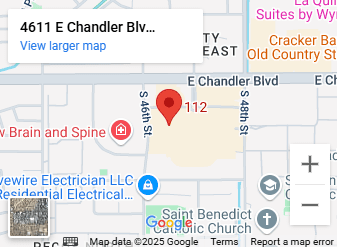How to Accurately Value My Business for Sale: Expert Business Valuation Methods and Services
Accurately valuing a business for sale establishes the foundation for a successful transaction and maximizes seller returns. Understanding how to value my business involves assessing financial performance, market comparables, and asset worth to determine a fair market price. In this guide, you will learn core valuation concepts, three primary valuation approaches, the essential financial statements required, key value drivers, and common pitfalls to avoid. You will also discover how B3 Business Brokers applies local Arizona and Southeast US expertise, proprietary processes, and real-world case studies to deliver precise valuations. By mapping out each step—from choosing the right method to leveraging professional brokerage services—you will gain actionable strategies to command top value and streamline your sale.
Unlocking Business Value: Expert Tips for Accurate Valuation
Business valuation quantifies a company’s worth by analyzing financial data, market conditions, and asset values to establish a sale price. This process provides owners with objective insight into fair market value, informs negotiation strategies, and underpins financing or tax planning. For example, a service business with stable cash flows will command a higher valuation using income-based methods, demonstrating how accurate valuation drives decision-making. Understanding valuation fundamentals sets the stage for selecting the optimal approach, preparing documentation, and timing your sale for peak market conditions.
What Does Business Valuation Mean for Business Owners and Entrepreneurs?
Business valuation equips owners with a data-driven estimate of their enterprise’s monetary worth, revealing strengths and areas for improvement. By measuring revenue multiples or discounted cash flows, entrepreneurs gain clarity on profitability trends and risk factors. For instance, applying a capitalization of earnings model highlights how recurring income streams influence value, enabling informed exit planning. This clarity empowers business owners to articulate value propositions, align growth strategies, and negotiate confidently with prospective buyers.
Why Is an Accurate Business Valuation Essential for a Successful Sale?
Accurate valuation directly impacts sale price, buyer confidence, and transaction speed by establishing transparent expectations on both sides. When sellers price too high, listings stagnate; too low, and owners leave money on the table. A precise appraisal balances asset values, market multiples, and future earnings projections to minimize deal friction. For example, a manufacturing firm that undertakes a discounted cash flow analysis aligned with industry growth forecasts can justify premium multiples, accelerating buyer interest and closing timelines. This is crucial when considering the value of my business.
When Should I Get a Business Valuation Before Selling?
You should obtain a valuation as early as 12–18 months before listing to allow time for operational improvements and strategic adjustments. Early assessment reveals financial gaps, highlights growth opportunities, and identifies market shifts—enabling owners to boost revenue, refine management processes, or strengthen customer relationships. Conducting a valuation too close to listing risks overlooking corrective measures, whereas proactive timing ensures peak performance metrics align with buyer demand.
What Are the Main Business Valuation Methods to Calculate My Business Value?
When valuing a business, three primary approaches—Income, Market, and Asset-Based—offer different perspectives on worth.
The Income Approach focuses on future earnings, converting projected cash flows into present value using a discount rate. It’s ideal for businesses with steady revenue and growth potential.
The Market Approach compares the business to similar companies or recent sales, showing what the market is willing to pay.
The Asset-Based Approach values a company by its net tangible and intangible assets, making it especially useful for asset-heavy industries.
Together, these methods provide a well-rounded view of a company’s value, helping owners choose the approach that best fits their business and goals.
How Does the Income Approach Work: Discounted Cash Flow and Capitalization of Earnings?
The Income Approach estimates value by translating future earnings or cash flows into present-day terms. Discounted Cash Flow (DCF) projects free cash flows over a forecast period and applies a discount rate reflecting risk, yielding net present value. Capitalization of Earnings divides a normalized earnings figure by a capitalization rate to produce a single-period valuation. Key steps include:
- Forecasting revenue growth and expense trends.
- Determining an appropriate discount or capitalization rate.
- Calculating present value of projected cash flows or earnings.
This method benefits businesses with predictable profits by capturing future potential, and it transitions smoothly into market analysis for multiple validation.
What Is the Market Approach: Comparable Sales and Valuation Multiples?
The Market Approach derives value from recent transactions of similar companies, using multiples such as price-to-earnings (P/E) or enterprise value-to-EBITDA. Analysts gather data on comparable sales, adjust for size and geographic differences, and apply average multiples to target business metrics:
- Industry benchmarks for revenue or EBITDA multiples.
- Adjustments for growth, risk profile, and market conditions.
- Real-time comparables to reflect current demand.
Companies with frequent M&A activity, like technology firms, benefit from market-based valuations that mirror prevailing buyer sentiment and acquisition premiums.
How Does the Asset-Based Approach Determine Business Worth?
The Asset-Based Approach calculates value by summing adjusted book values of tangible and intangible assets minus liabilities. Two variants exist: going-concern (adjusts assets at fair market value) and liquidation (values assets at forced-sale prices). Key steps involve:
- Revaluing fixed assets, inventory, and receivables.
- Accounting for intellectual property, brand equity, and goodwill.
- Subtracting outstanding debt or obligations.
This approach suits capital-intensive or distressed businesses where asset liquidation or replacement costs drive value.
The asset-based approach focuses on the tangible and intangible assets of a business, adjusting their book values to reflect current market conditions.
Asset-Based Approach to Business Valuation: Methods and Considerations
1. This chapter explores the asset-based approach to valuation. It first underscores the advantages and weaknesses of owner’s equity recorded on the balance sheet as an indicator for the value of a company.
2. The majority of the chapter explores the adjusted net asset value method (ANAV method), which improves the quality of the balance sheet by adjusting and updating accounting or book values. The goal is to replace historical cost data with current market data and eliminate non-recurring items.
3. The ANAV method evolves in its degree of complexity depending on the relative size and nature of intangible assets. The capitalized excess earnings method (CEEM) attempts to capture and value significant goodwill.
4. This book does not address the tax consequences of the various adjustments and asset revaluations (deferred income tax liability). The assumption is that no core or non-core asset sale is planned in the short term, and the business is considered an independent and going concern entity.
5. Calculating the tax impact requires the intervention of a chartered accountant or a lawyer who specializes in tax law; this topic is beyond the scope of this book.
Asset-based approach to valuation, 2021
How Do I Choose the Right Valuation Method for My Business?
Selecting the ideal valuation method requires matching business characteristics to each approach’s strengths. Compare approaches using this summary:
| Valuation Method | Best For | Key Consideration |
|---|---|---|
| Discounted Cash Flow | Stable, forecastable cash flows | Accurate cash flow projections |
| Capitalization of Earnings | Consistent earnings with low growth variance | Normalizing one-time items |
| Comparable Sales | Industries with active M&A and public data | Quality of comparable transaction data |
| Asset-Based Valuation | Asset-rich or underperforming businesses | Fair market value adjustments |
Evaluating these attributes clarifies which approach yields the most supportable valuation and aligns with buyer expectations.
What Key Financial Documents Do I Need to Accurately Value My Business?
Preparing accurate valuation demands audited financial statements that reflect true operating performance. Key documents ensure a comprehensive view of revenue, costs, assets, and cash flow, forming the backbone of every valuation method. As you gather these statements, you will identify trends, uncover adjustments, and validate projections for a substantiated appraisal.
How Does the Income Statement Impact Business Valuation?
The income statement outlines a company’s revenues, gross margins, operating expenses, and net profit—key inputs for income-based valuation methods. Adjusting for one-time costs, owner compensation, and nonrecurring income produces normalized earnings, which reflect sustainable performance. These normalized figures form the foundation for Discounted Cash Flow (DCF) and capitalization calculations, offering a more accurate picture of ongoing profitability and helping owners estimate their business’s true value.
Why Is the Balance Sheet Important for Valuing a Business?
The balance sheet lists assets, liabilities, and equity at a specific date, offering a snapshot of book value and capital structure. It guides asset-based valuations by identifying asset revaluations and debt obligations that impact net asset worth. Strong asset holdings enhance collateral strength and reduce perceived risk, while high liabilities may lower fair market value when applying going-concern or liquidation models.
What Role Does the Cash Flow Statement Play in Business Valuation?
The cash flow statement tracks operational, investing, and financing cash movements, revealing true liquidity and free cash flow generation. Positive operating cash flow indicates sustainable earnings quality, while capital expenditures and financing activities inform maintenance and growth assumptions. Cash flow insights refine discount rates and forecast accuracy in DCF models, reinforcing valuation credibility.
What Factors Affect the Value of My Business for Sale?
Multiple internal and external factors converge to shape a business’s market value. Industry trends, financial performance, intangible assets, and operational efficiency all influence buyer perception and willingness to pay premium multiples. Recognizing these factors empowers owners to enhance value drivers and mitigate risks ahead of sale.
How Do Industry Trends and Local Market Conditions Influence Business Value?
Industry growth rates, competitive landscape, and buyer demand dynamics determine appropriate valuation multiples and risk premiums. In Arizona’s expanding service sectors or the Southeast US manufacturing markets, local economic indicators—employment growth, consumer spending, and M&A activity—directly affect buyer interest and pricing. Aligning valuation assumptions with current market conditions ensures realistic, compelling valuations.
What Impact Do Financial Performance and Growth Potential Have on Valuation?
Sustained revenue growth, strong profit margins, and predictable cash flows drive higher valuation multiples by reducing perceived risk. Buyers reward companies with demonstrated scalability or a clear expansion roadmap, applying premium multiples to fast-growing enterprises. Conversely, stagnating sales or volatile margins trigger conservative valuations, underscoring the importance of robust growth projections.
How Do Intangible Assets Like Brand and Customer Base Affect Business Worth?
Well-established brands, loyal customer relationships, proprietary technology, and intellectual property generate value beyond tangible books. These intangible assets enhance competitive differentiation, support premium pricing, and contribute to future earnings potential. Quantifying goodwill or customer lifetime value within income forecasts elevates total enterprise value under income-based approaches.
Why Is Operational Efficiency and Management Team Quality Important?
Efficient processes, standardized procedures, and a capable leadership team reduce execution risk and ensure continuity after sale. Buyers factor in operational metrics—inventory turnover, customer acquisition costs, employee turnover—and management depth when assessing integration ease and future profitability. High operational maturity and a strong management bench command higher valuations by demonstrating stability and growth readiness.
How Does B3 Business Brokers Help Me Accurately Value and Sell My Business?
B3 Business Brokers provides end-to-end brokerage and valuation services, combining proprietary valuation models, local market intelligence, and deal management expertise. Our holistic process integrates financial analysis, market research, and buyer matching to maximize sale proceeds. By partnering with experienced certified appraisers and leveraging regional insights, business owners benefit from precise valuations and efficient transaction execution.
What Is the Step-by-Step Business Valuation Process with B3 Business Brokers?
B3 Business Brokers employs a structured five-step valuation process to ensure accuracy and transparency:
- Initial financial review and data collection.
- Industry and regional market analysis.
- Application of income, market, and asset-based models.
- Reconciliation of multiple valuation outputs.
- Delivery of a comprehensive valuation report with strategic recommendations.
This process transitions seamlessly into deal preparation, offering sellers clear action items for value enhancement.
How Does Local Market Expertise in Arizona and Southeast US Improve Valuation Accuracy?
Deep knowledge of Arizona’s Phoenix metro growth trends, Southeast US manufacturing clusters, and buyer profiles enables precise adjustment of valuation multiples and risk assumptions. Understanding local transaction comparables, regulatory environments, and regional economic drivers refines model inputs for more credible, defendable valuations. This regional focus accelerates buyer engagement and supports robust negotiation positioning.
What Common Mistakes Should I Avoid When Valuing My Business for Sale?
Avoiding valuation errors protects sale outcomes and preserves credibility with buyers. Common missteps include relying on outdated records, misapplying valuation models, and bypassing professional guidance. Recognizing these risks in advance allows owners to implement corrective measures and engage expert advisors to safeguard value.
Why Is Relying on Poor Financial Records Risky for Business Valuation?
Inaccurate or incomplete accounting obscures true performance, leading to misguided projections and undervalued multipliers. Clean, audited financials support normalized earnings adjustments, strengthen DCF inputs, and validate asset revaluations. Addressing record-keeping gaps early enhances transparency and buyer confidence.
What Are the Risks of Skipping Professional Business Valuation Services?
Foregoing expert appraisal risks mispricing, protracted sale timelines, and lost negotiation leverage. Professional valuators bring analytical rigor, market comparables, and industry benchmarks that DIY methods often lack. Engaging certified appraisers and brokers mitigates valuation bias, uncovers hidden value drivers, and accelerates transaction success.
What Tools and Resources Can Help Me Calculate My Business Value?
Leveraging tools and educational resources empowers owners to perform preliminary valuations and understand core concepts before engaging professionals. Valuation calculators, glossaries, and specialized software streamline data analysis and foster informed decision-making.
How Can a Business Valuation Calculator Simplify Estimating My Business Worth?
A valuation calculator automates multiple method computations by prompting input of revenue, EBITDA, asset values, and risk factors. It instantly generates DCF projections, market multiples estimates, and asset-based valuations, offering a preliminary sense of value. This tool saves time, highlights key drivers, and guides deeper professional analysis.
What Are the Essential Terms in Business Valuation I Should Know?
A clear grasp of valuation terminology ensures accurate interpretation of reports and models. Key terms include:
- EBITDA: Earnings before interest, taxes, depreciation, and amortization.
- Capitalization Rate: Rate used to convert earnings into value.
- Fair Market Value: Price at which willing parties transact under no duress.
- Normalized Earnings: Adjusted profits excluding one-time items.
- Working Capital Adjustment: Difference between surplus and required operating capital.
What Are Frequently Asked Questions About Business Valuation for Sellers?
Sellers often inquire about timing, model selection, and cost of appraisal services. Common themes include when to update valuations, how valuation fees impact net proceeds, and which method best suits service versus manufacturing businesses. Understanding these recurring concerns sharpens preparation and informed engagement with brokers and appraisers.
Accurate business valuation transforms uncertainty into strategic insight, positioning your company for a profitable sale. By applying the right methods, preparing thorough financial documentation, and leveraging regional expertise, you can achieve a defensible price and streamlined transaction. Engaging experienced brokers ensures every value driver is optimized, maximizing your return and facilitating a smooth ownership transition.




